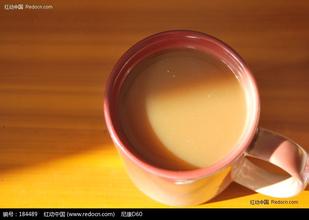A brief introduction to the treatment of the flavor and aroma characteristics of Guatemala Antigua coffee with rich velvet mellow

The volcano once destroyed the once-prosperous capital in an instant, robbing it of all its prosperity and beauty overnight. After this subversive mountain city, the splendor has disappeared for more than 200 years, and Antigua has never swaggered again. After being dull, Antigua is now run by the last remaining Indians. These hardworking Indians became later coffee producers. They not only discovered the rich and attractive unique smell of Antigua coffee, but also brought it to people all over the world. Today, Antigua coffee enjoys a reputation as the best quality coffee in the world, and Antigua coffee is praised by coffee connoisseurs as the best and most unusual coffee in the world. Antigua coffee is sought after by most coffee lovers because of its distinctive aroma. Because it is planted in the hills of volcanoes, it can retain its own characteristics more than Costa Rica, the main reason is that it has more geographical and climatic advantages than Costa Rica. Guatemala is located in the tropics, but due to the relatively high altitude, the climate is mild, it is a subtropical climate. Under the influence of this climate, coffee trees blossom and bear fruit more slowly than coffee trees in other parts of the world. However, the mild climate and fertile soil make it an excellent environment for growing coffee.
The coffee industry, run by the Mayans, once boomed the Guatemalan economy and dominated the national economy. Unfortunately, the political situation in Guatemala is not good for these coffee growers. High output is usually a sign of a country's overall economic prosperity. However, coffee production in Guatemala has declined relatively, at 700kg per hectare, compared with 900kg per hectare in El Salvador and 1700 kg per hectare in Costa Rica. Guatemalan coffee exports are controlled by private companies, but the National Coffee Council controls other sectors of the coffee industry.
Between 1950 and 1954, the ruling president Jacobo Abens implemented land reform, when big landlords, who accounted for 2 per cent of the country's population, owned about 70 per cent of the country's arable land. Arbens wrote a check for land reform, promising to buy the land held by the big landlords and redistribute it to small farmers. Arbens won the election, and the land reform plan was carried out immediately. Landlords who own more than 223 acres of land will be expropriated as long as there is land not used for production. In the end, an average of 4300 acres of land was expropriated from 1059 farms, and about 100, 000 farmers were given ownership of the land. [7]
United Fruit has its largest estate in Guatemala, and it also owns the Central American International Railway and Guatemala's only seaport. Driven by the United Fruit Company, the US Ministry of Foreign Affairs began a propaganda war against Guatemala to crack down on the Arbens regime in the name of anti-communism. The CIA, in cooperation with the opposition among Guatemalan soldiers, began an operation called Operation PBSUCCESS in 1996, ending a 36-year guerrilla war by signing a peace treaty. [7]
In the general election in Guatemala on November 9, 2003, Oscar Berhe, the candidate of the National Grand League, was elected president, and the National Grand League is the most powerful party in Congress. The participation rate is 54.5%. [7]
On September 9, 2007, presidential and congressional elections. Otto Perez Molina and Alvaro Colom entered the second round of voting in the presidential election. At 10:00 that evening (local time), the Central Election Commission announced that Colom had won by 5.4%, becoming Guatemala's first left-wing president in 53 years.
On November 6, 2011, in the second round of voting in the general election in Guatemala, Otto Perez Molina, on behalf of the Patriotic Party, defeated LIDER member Manuel Baldison with 54.48% of the vote, becoming the 48th president of Guatemala.
If a person's wrinkles depict a person's path, then the smell of coffee remembers the origin of a cup of coffee: about its hometown, the time of harvest, the way it is roasted and ground, that is, the lifetime journey of coffee. Guatemala's fertile volcanic soil gives birth to a unique flavor of boutique coffee beans: Antigua coffee. The charm of Antigua lies in its balanced and refreshing acidity, rich spice and unique smoky taste, as if to tell us about the desolate history of Antigua in Guatemala.
The aroma of coffee liberates all forms, hearts and national boundaries. Through coffee, the mood leaves the country at any time and lands in a strange country half a world away. Even at the end of the world, you can share a mood. Antigua was the capital of the Spanish colonial period in 1543. Although this emerald-like valley has been surrounded by active volcanoes in all directions, layered, deliberately waiting and full of dangers since ancient times, its vastness, vastness and fertility still tempted Spaniards to build a capital in the precarious cliff valley.
Important Notice :
前街咖啡 FrontStreet Coffee has moved to new addredd:
FrontStreet Coffee Address: 315,Donghua East Road,GuangZhou
Tel:020 38364473
- Prev

Balanced flavor and taste characteristics of Antigua coffee in Guatemala A brief introduction to the cultivation of manor production areas
[characteristics] High acidity, pleasant, high alcohol thickness, rich volcanic soil with wine aftertaste of Antigua coffee, low humidity, plenty of sunshine, cool night, are the characteristics of this producing area. The valley is surrounded by three volcanoes: Agua, Fuego and Acatenango. The volcanic ash from the eruption caused the soil of Antigua.
- Next

A brief introduction to the description of flavor and aroma characteristics of light roasted Panamanian Cupid boutique coffee
La Esmeralda Manor has won 12 coffee competitions so far, and the highest bidding record for three times in online open bidding is US $21 in 2004, US $50.25 in 2006 and US $130 in 2007. Of course, other countries have also soared a pound of good coffee close to $50 (Brazil's CoE champion Fazenda Santa Ins in 2005)
Related
- Detailed explanation of Jadeite planting Land in Panamanian Jadeite Manor introduction to the grading system of Jadeite competitive bidding, Red bid, Green bid and Rose Summer
- Story of Coffee planting in Brenka region of Costa Rica Stonehenge Manor anaerobic heavy honey treatment of flavor mouth
- What's on the barrel of Blue Mountain Coffee beans?
- Can American coffee also pull flowers? How to use hot American style to pull out a good-looking pattern?
- Can you make a cold extract with coffee beans? What is the right proportion for cold-extracted coffee formula?
- Indonesian PWN Gold Mandrine Coffee Origin Features Flavor How to Chong? Mandolin coffee is American.
- A brief introduction to the flavor characteristics of Brazilian yellow bourbon coffee beans
- What is the effect of different water quality on the flavor of cold-extracted coffee? What kind of water is best for brewing coffee?
- Why do you think of Rose Summer whenever you mention Panamanian coffee?
- Introduction to the characteristics of authentic blue mountain coffee bean producing areas? What is the CIB Coffee Authority in Jamaica?

